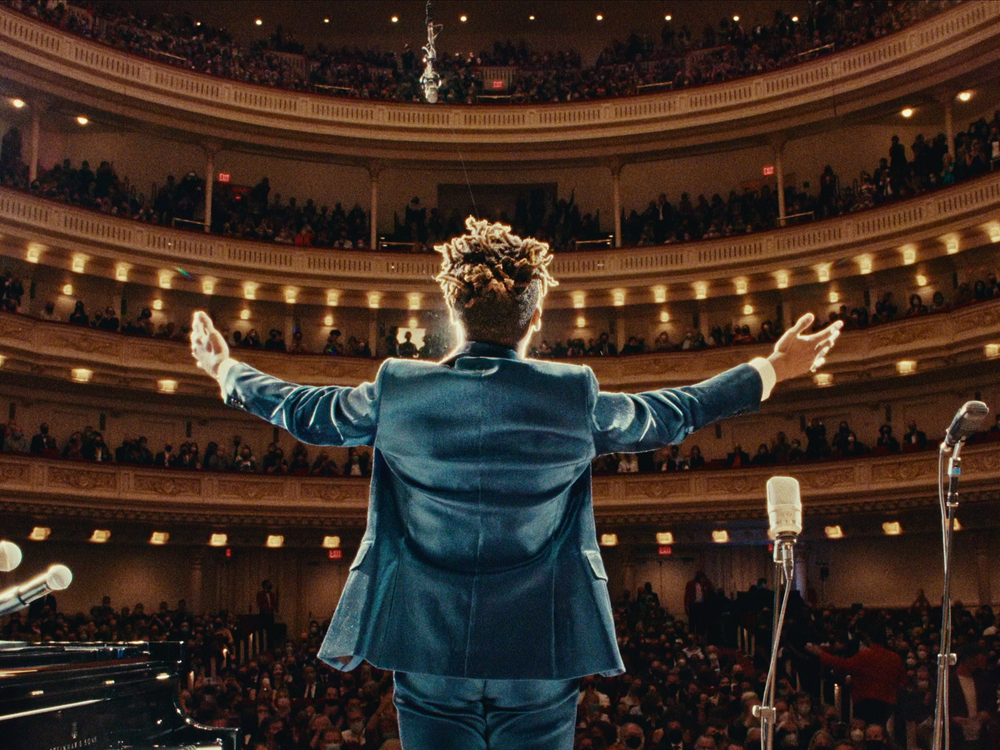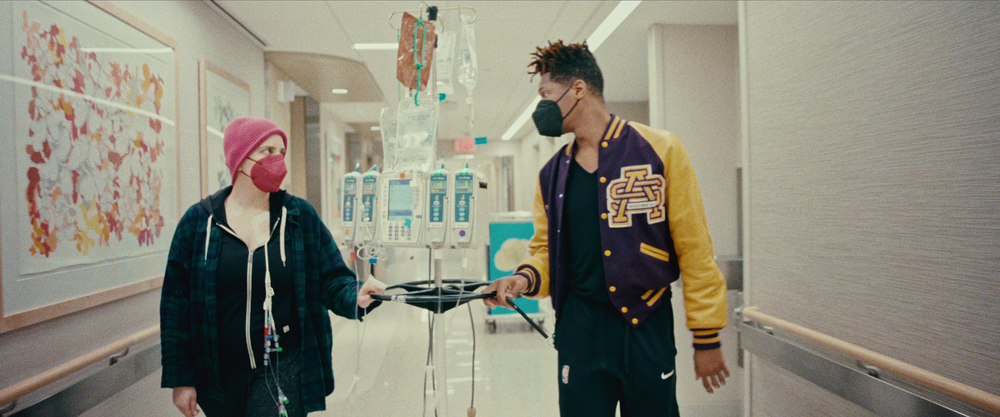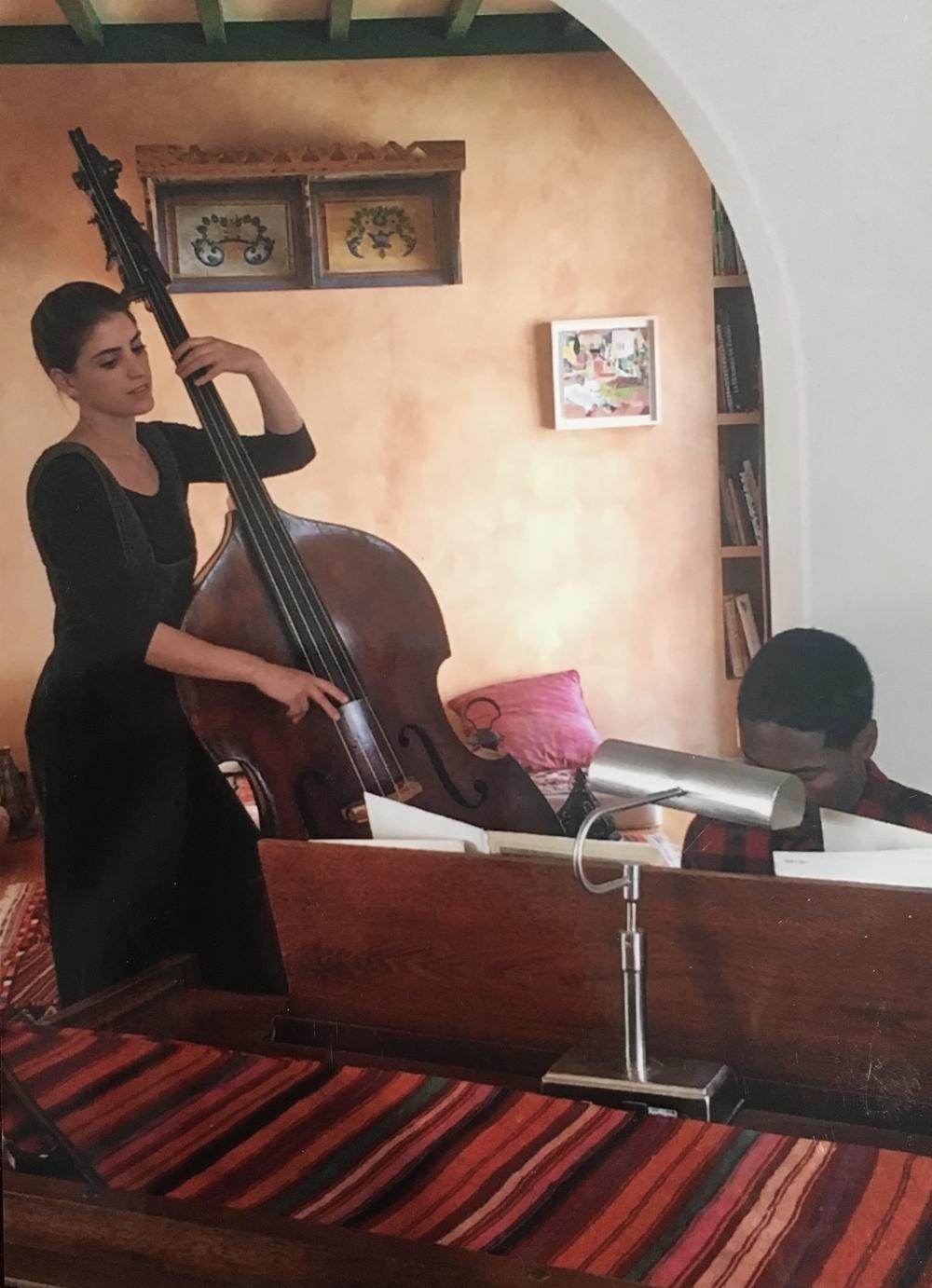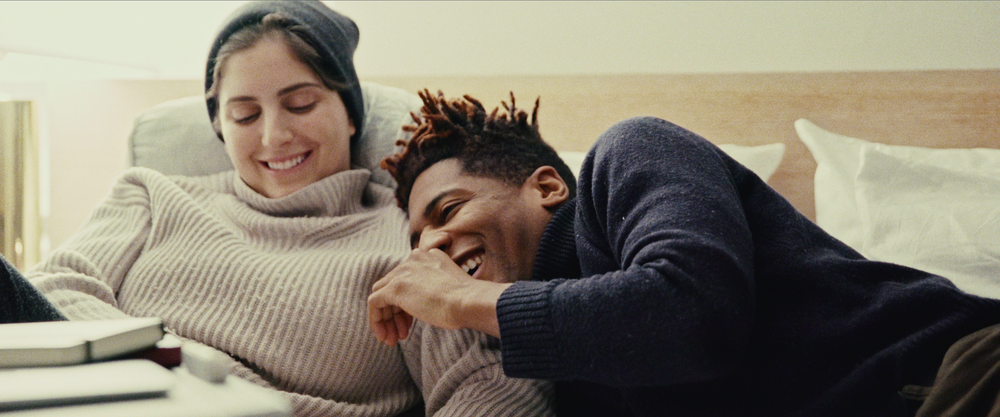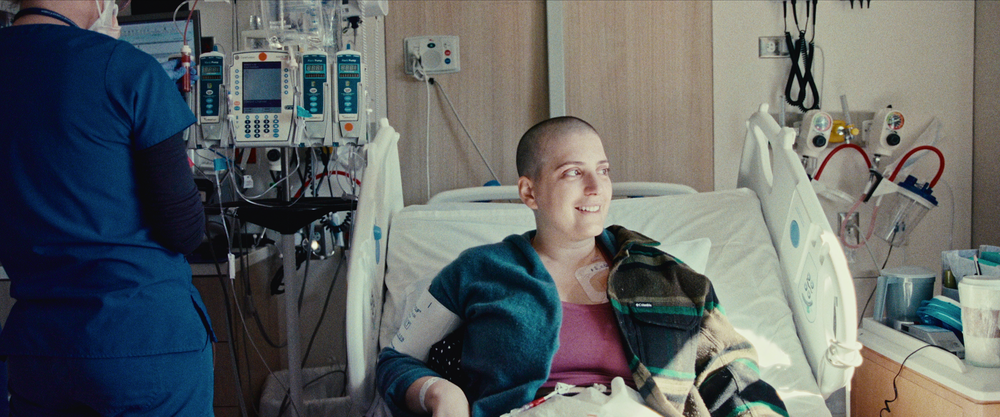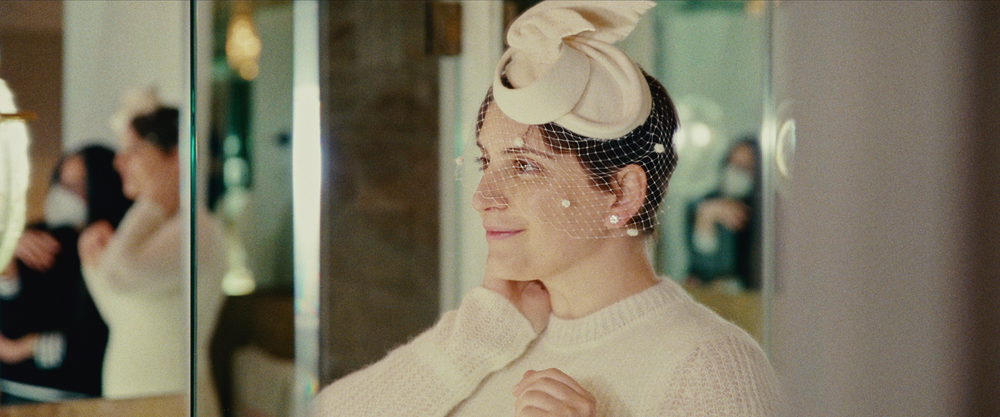Section Branding
Header Content
Jon Batiste and Suleika Jaouad share journey of 'two extremes' in American Symphony
Primary Content
When the Grammy nominations were announced on November 23, 2021, musician Jon Batiste received a staggering 11 nods. But the date was also memorable because his partner, writer Suleika Jaouad, also began her first day of chemotherapy to treat her leukemia that had returned after nearly 10 years in remission. Theirs was a life of contrast.
The new documentary American Symphony chronicles the incredible highs and devastating lows of the year that followed, from a marriage, to a bone marrow transplant for Jaouad, five Grammy wins for Batiste and the premiere of his eponymous first symphonic composition at New York's Carnegie Hall.
The film, directed by Matthew Heineman, counts Barack and Michelle Obama among its executive producers. It's in select theaters now and on Netflix starting Nov. 29.
Earlier this month, Batiste received another six Grammy nominations for his latest album, World Music Radio, and he's getting ready to go on tour. Jaouad, who penned a searing memoir in 2021, is receiving long-term maintenance chemotherapy in order to keep her cancer in check.
"Now for us to be able to have an opportunity to go to the Grammys together this year for the song 'Butterfly' from World Music Radio that was written for Suleika about this time," Batiste told Leila Fadel on NPR's Morning Edition, "There's so much connection. It's unbelievable."
Jaouad says her long battle with chronic, life-threatening illness changed her perspective on life challenges.
"My oncologist said, you have to live every day as if it's your last. And as well-intentioned as that is, I've had to reframe that for myself, because it's the kind of statement that can unintentionally fill you with panic and a sense of doom," Jaouad said. "Instead, I've had to shift into a mindset of living every day as if it's my first; of waking up with a curiosity and sense of wonder that a newborn might."
This interview has been edited for length and clarity.
Interview highlights
Suleika Jaouad: I think it's easy to fall into binary thinking, that we're either happy or sad or sick or well. But the reality is that most of us exist somewhere in the messy middle. And this was a heightened example of having to figure out how to hold those two extremes of so much joy and so much heartbreak all happening at once.
Leila Fadel: Was it hard to be so vulnerable and share that with the world?
Jaouad: It was hard. It was a conversation that we had to continually reassess. Nothing about the experience of being very sick makes you want to share: it makes you want to retreat and cocoon and hide. I really wanted to show what it means to be in the trenches of treatment while also moving forward with your life. Because you have to. And you know, without knowing how that story was going to end, we didn't know if this documentary was going to have a tragic ending or a happy one or one in between.
Fadel: There is a moment in the documentary that's so symbolic of that, where, Jon, you're just coming back from where you've gotten five Grammys, this incredible performance, and then you lay with Suleika in her hospital bed. Can you talk about that moment?
Jon Batiste: Living in the present is something you often hear, but really it's all we have. This moment, particularly those two days – which happened in sequence in the film and were literally one day at the Grammys, the next day in the hospital – that moment helped me to be in the present more so than any other moment that I can recall in my entire life. It required that in order to move through all of the stimulus and all the demands of each of those moments, to be at the Grammys and to really show up, but also feeling torn because I wanna be with Suleika. You can't be in both of those places simultaneously.
Fadel: You say in the documentary that you and Jon share a creative language, a language that predates your romantic relationship. If you could share more about what that is, what connects you?
Jaouad: Creativity informs every aspect of our lives, be it a makeshift living room wedding as we fashioned for ourselves on the eve of my being admitted to the hospital, or in the case of painting, having to find a different language to express myself. I was having these terrifying night terrors and nightmares that were enhanced by the medication that I was on. And rather than being held captive by them, I decided to transcribe them in the form of these paintings. And that's what I love so much about the creative arts. You get to alchemize any moment and turn it into something of your own, turn it into something meaningful and maybe even beautiful. And it's a way of, you know, putting your stamp on an experience and ensuring that you're not bested by it.
Fadel: I think for so many people, there's a tendency to want to numb in moments that are so hard.
Jaouad: It's very tempting to just shut your brain down and to disengage with whatever is happening. But I know from experience that we can't stow the most painful parts of our lives or our past. They always have a way of not only coming back up to the surface, but often coming back up with 10 times the strength they had. And so I've learned that as uncomfortable as it might be, as frightening as it might be, to engage with whatever is most difficult is the most efficient way of moving through it and finding out what's on the other side of it.
Fadel: Jon, there's a moment where you're in a hall and you dedicate the last song of your set to Suleika. You take a long time to collect yourself before playing. And this was while Suleika was in the hospital for treatment. What was going through your head in that moment?
Batiste: I love that Matt kept the over a minute worth of silent meditation in that part of the film and really shows what the process of being a vessel, being a channel really is. Much of it you hear, from this piece. It's the sound of the keys in the higher register, pulling against whatever forces may be trying to take her health, whatever forces may be trying to cause any harm. They're being completely cast asunder and dashed. And the way that my mind saw it, it almost was a battle of angels, and it was very much a vision that I was having while playing and before playing. That performance was a prayer, and that moment was a deep prayer of healing.
Fadel: You reflected a lot as you put this symphony together. And there's a time where you're talking about the way that people want to see you as a pop artist. Tell me more about pushing against that, this box where Black creatives are put in.
Batiste: Creativity, it's declaring the essence of who I am and the lineage that is all that I stand on. There are forces that don't want that to happen, particularly when you think about the harm of our understanding of race and our heritage in this country, in the United States of America, and us not really coming to terms with all of the history of our country. And in general, it stops us from reaching our highest potential as artists and as a human race. So when I write a symphony and I think about it from the perspective of race, I'm not just pushing against something. I'm first proclaiming and reaching for quality and excellence.
The digital version of this story was edited by Treye Green.
Copyright 2023 NPR. To see more, visit https://www.npr.org.
